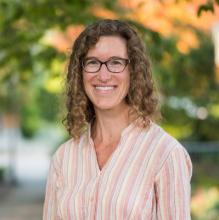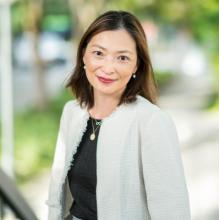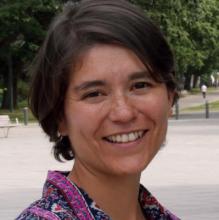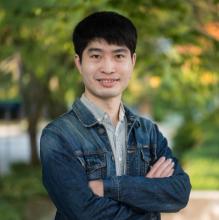Neila explores how Muslim youth negotiate their identities as Muslims and /or Canadians and how they express their sense of (un)belonging to Canada. The purpose of her work is to connect academic scholarship to the lived realities and experiences of Muslim youth, especially at this time of increasing islamophobia.
Research Description
Creating, and recreating identities is a developmental task of adolescence in general, but for young Muslim adolescents the task is much harder. They embody multiple conflicts and must struggle daily to survive within a local-global context of Islamophobia and "war on terror". The increasing terror attacks in different cities around the world not only added to the negative representation of Muslims, but also have enhanced their isolation and the surge in Islamophobia and hate crimes against Muslims. In my research, I explore the complexities of being/becoming Muslim and Canadian in an urban high school and identify the different policies and attitudes that have a strong impact on their sense of (un)belonging. This research locates Muslim youth within a world characterized by global interdependence, increasing transnational migration, media flows, technology and political turmoil.
What does being a Public Scholar mean to you?
Being a public scholar means using academic knowledge and expertise to serve the public good. It is a commitment to employ all the academic skills to improve our communities and to be close to the realities of the communities we are interested in. As a public scholar I feel more responsible to bridge the gap between academia and the public and to build connections, establish lasting partnerships and create a real change in the lives of the community I work with.
In what ways do you think the PhD experience can be re-imagined with the Public Scholars Initiative?
The public scholar initiative is a great opportunity to help PhD students build networks, develop skills and competencies and gain access to several resources and explore career opportunities outside academia.
How do you envision connecting your PhD work with broader career possibilities?
I think that what I value in the PhD journey is not the title, but the skills that I have developed through those years of research. These skills can be used in so many sectors outside academia. I see myself pursuing a career with government or non-government sector involved in youth, diversity, immigration and refugees especially in relation to education and careers. I would love to use the expertise I gained from my life experiences and academic journey in a career that engages with social justice and anti-racism.
How does your research engage with the larger community and social partners?
My research is with Muslim youth and it takes place in a high school, I am using photovoice, a participatory method that gives these youth the chance to express themselves and see things from their perspectives. With this project, my research is gathering teachers, students, parents and all the stakeholders in a very unique partnership to help these young men and women show how they see themselves and how they would like to be represented.
Why did you decide to pursue a graduate degree?
It was a journey that started out of frustration when I realized that my credentials and teaching experience outside Canada would not be enough to teach and I had to redo everything. Pursuing a graduate degree in education was a way to challenge the system and find effective ways to integrate as an immigrant woman and to show my kids that pursuing a dream is worth all the effort and sacrifices.
Why did you choose to come to British Columbia and study at UBC?
I did my MA here at UBC and I fell in love with it. Living in Vancouver and to have the opportunity to live on campus is such a beautiful experience. Another important reason is that the faculty of education is one of the best in Canada
I realized that my credentials and teaching experience outside Canada would not be enough to teach and I had to redo everything. Pursuing a graduate degree in education was a way to challenge the system and find effective ways to integrate as an immigrant woman and to show my kids that pursuing a dream is worth all the effort and sacrifices.




